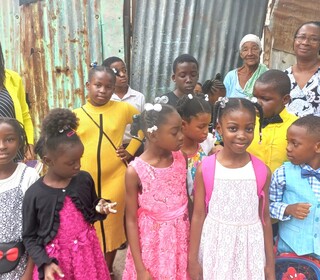Children’s ministries develops the faith of children from birth through age 14, leading them into union with the Church. It seeks to provide multiple ministries that will lead children to Jesus and disciple them in their daily walk with Him. It cooperates with the Sabbath school and other departments to provide religious education to children and fulfills its mission by developing a variety of grace-oriented ministries for children that are inclusive, service-oriented, leadership-building, safe, and evangelistic.
“Too much importance cannot be placed on the early training of children. The lessons that the child learns during the first seven years of life have more to do with forming his character than all that it learns in future years.”—CG 193.
“It is still true that children are the most susceptible to the teachings of the gospel; their hearts are open to divine influences, and strong to retain the lessons received. The little children may be Christians, having an experience in accordance with their years. They need to be educated in spiritual things, and parents should give them every advantage, that they may form characters after the similitude of the character of Christ.”—DA 515.
“Children of eight, ten, or twelve years are old enough to be addressed on the subject of personal religion. . . . If properly instructed, very young children may have correct views of their state as sinners and of the way of salvation through Christ.”—1T 400.
“When Jesus told the disciples not to forbid the children to come to Him, He was speaking to His followers in all ages—to officers of the church, to ministers, helpers, and all Christians. Jesus is drawing the children, and He bids us, Suffer them to come; as if He would say, They will come if you do not hinder them.”—DA 517.
Children’s Ministries Coordinator and Committee—The church elects a children’s ministries coordinator to develop ministries that nurture the faith of children. The coordinator should have leadership ability as well as experience and passion for working with children.
The children’s ministries coordinator works with the pastor and board to establish a children’s ministries committee to provide ministries for children. The committee should consist of individuals with interest and experience in working with children. Ordinarily the members include Sabbath school division leaders, Vacation Bible School leader, Adventist Junior Youth leaders, and two to three others who have a passion for ministry to children.
Everyone involved in work with children must meet Church and legal standards and requirements, such as background checks or certification. Local church leaders should consult with the conference, which will ascertain and advise as to what background checks and certifications are available and/or required.
Children’s Ministries Resources (see p. 86)—The Children’s Ministries Handbook: A Step-by-Step Guide for Children’s Leaders Around the World (2005); The Children’s Ministries Coordinator: A Step-by-Step Guide for Organizing Children’s Ministries in the Local Church (2005); and Pastor’s and Elder’s Handbook for Children’s Ministries (2005). Silver Spring, Md.: Children’s Ministries, General Conference of Seventh-day Adventists. For further information, contact your local conference children’s ministries director and www.gcchildmin.org.




